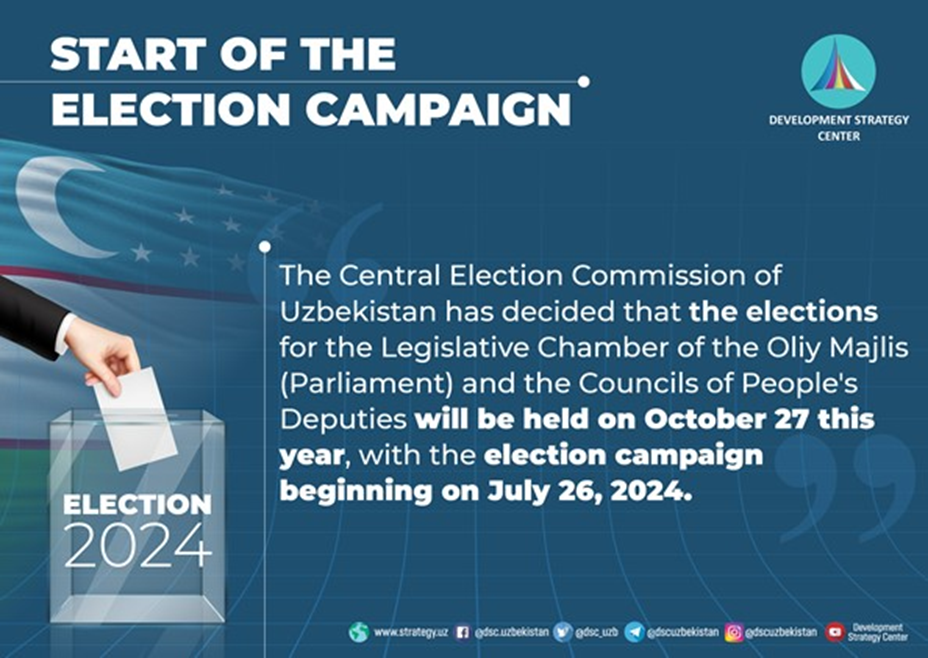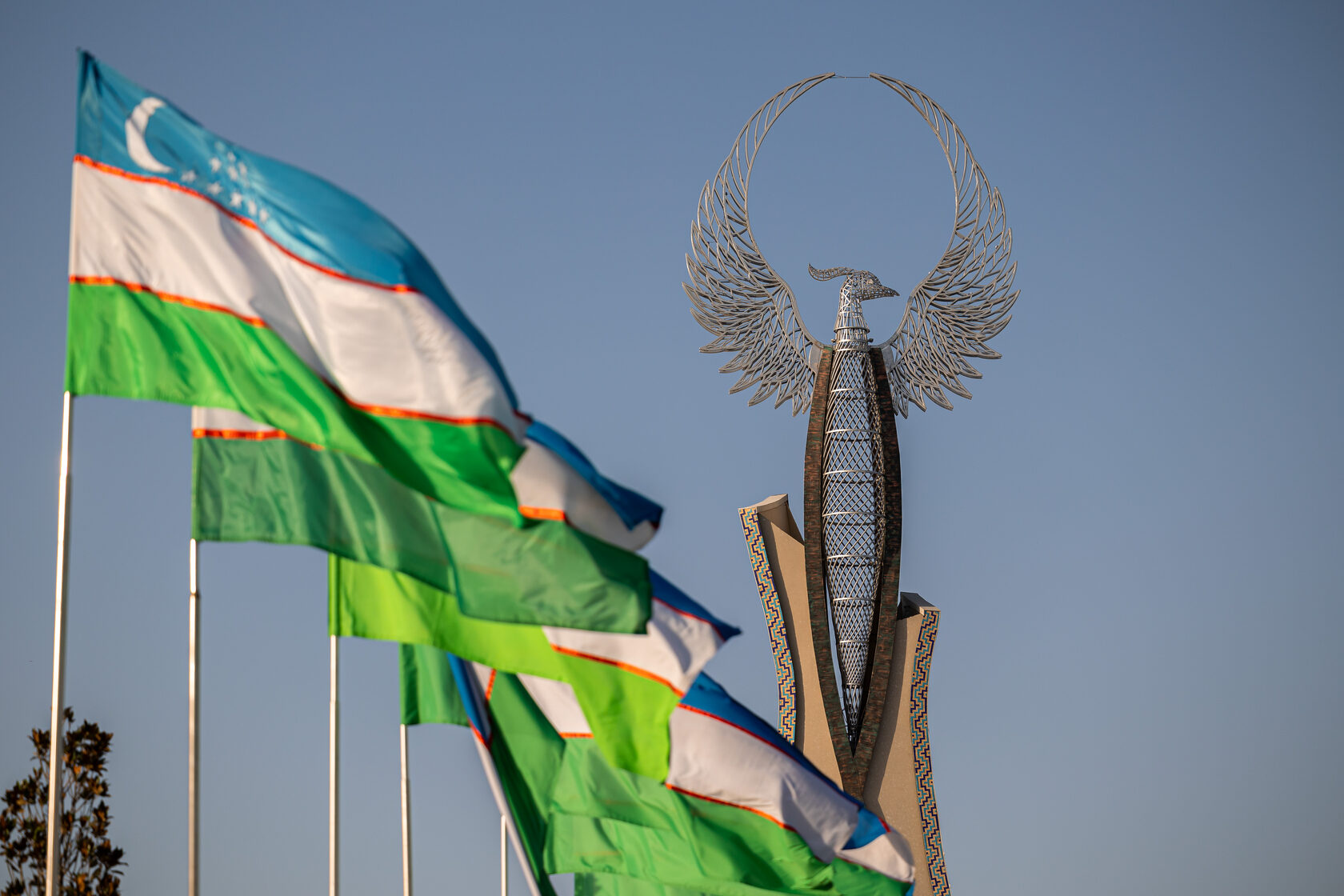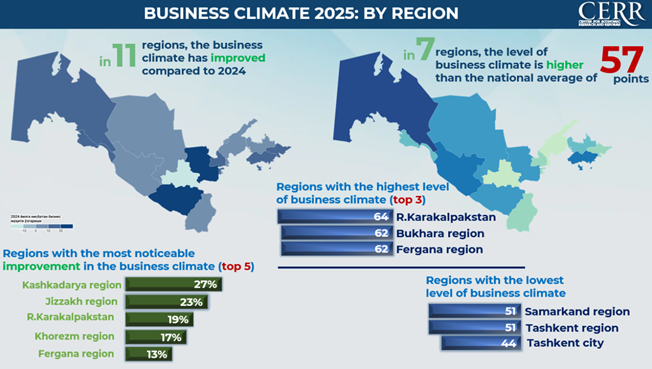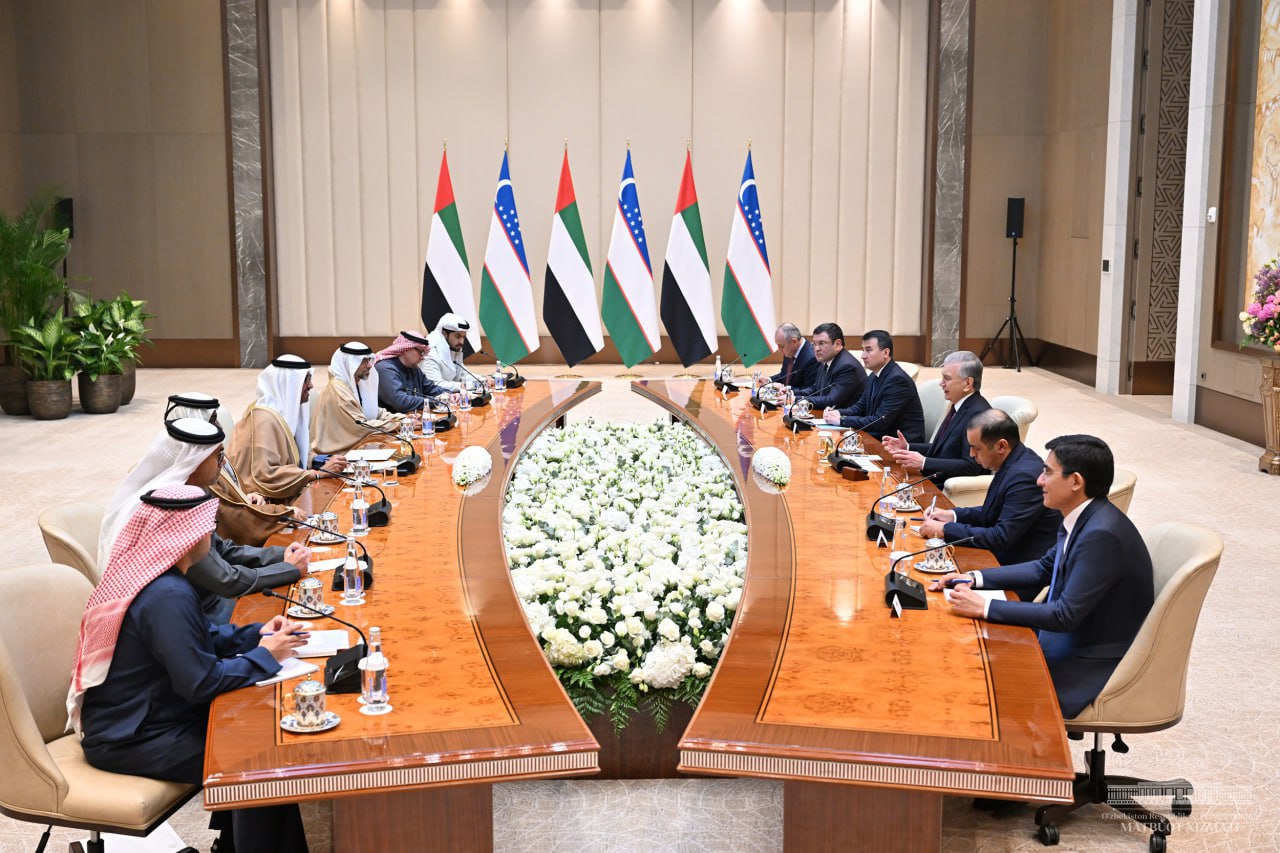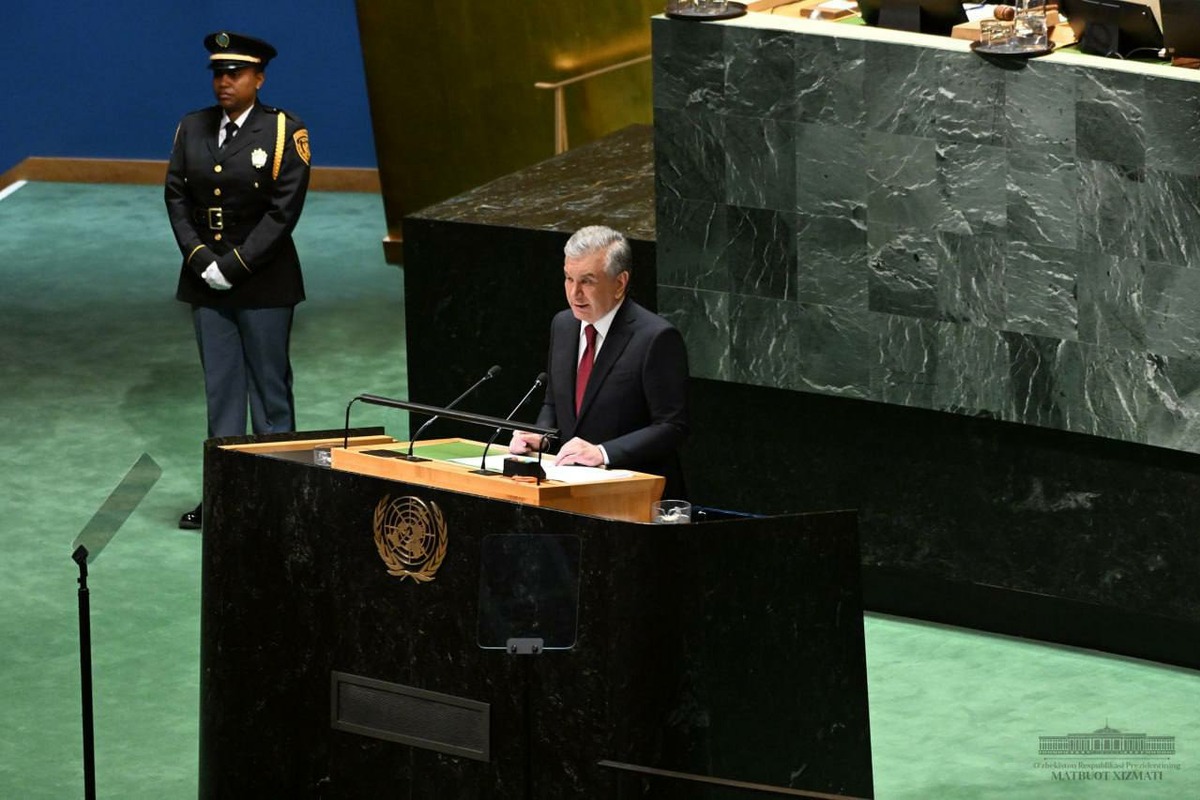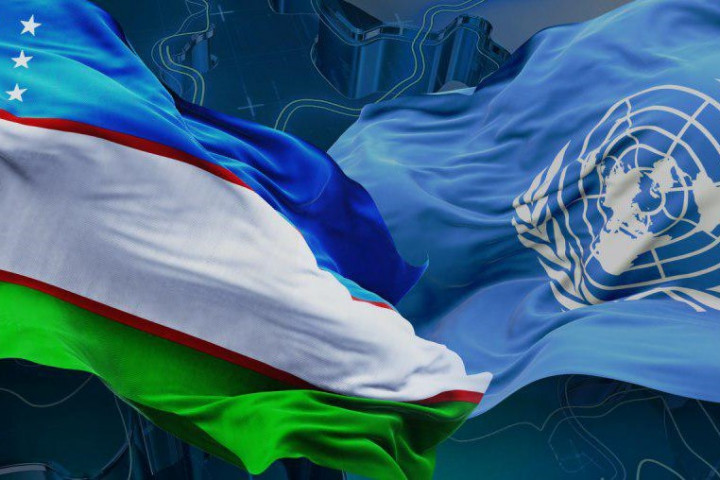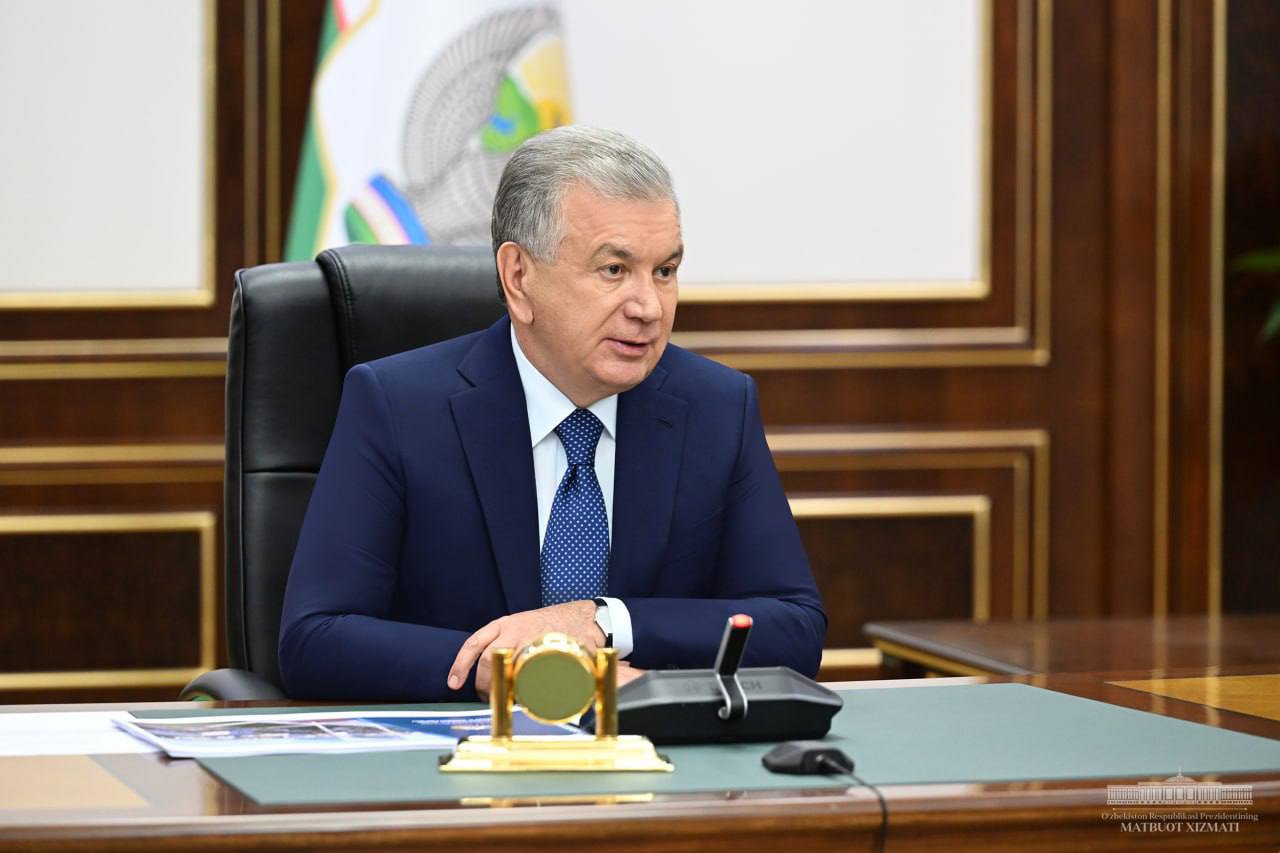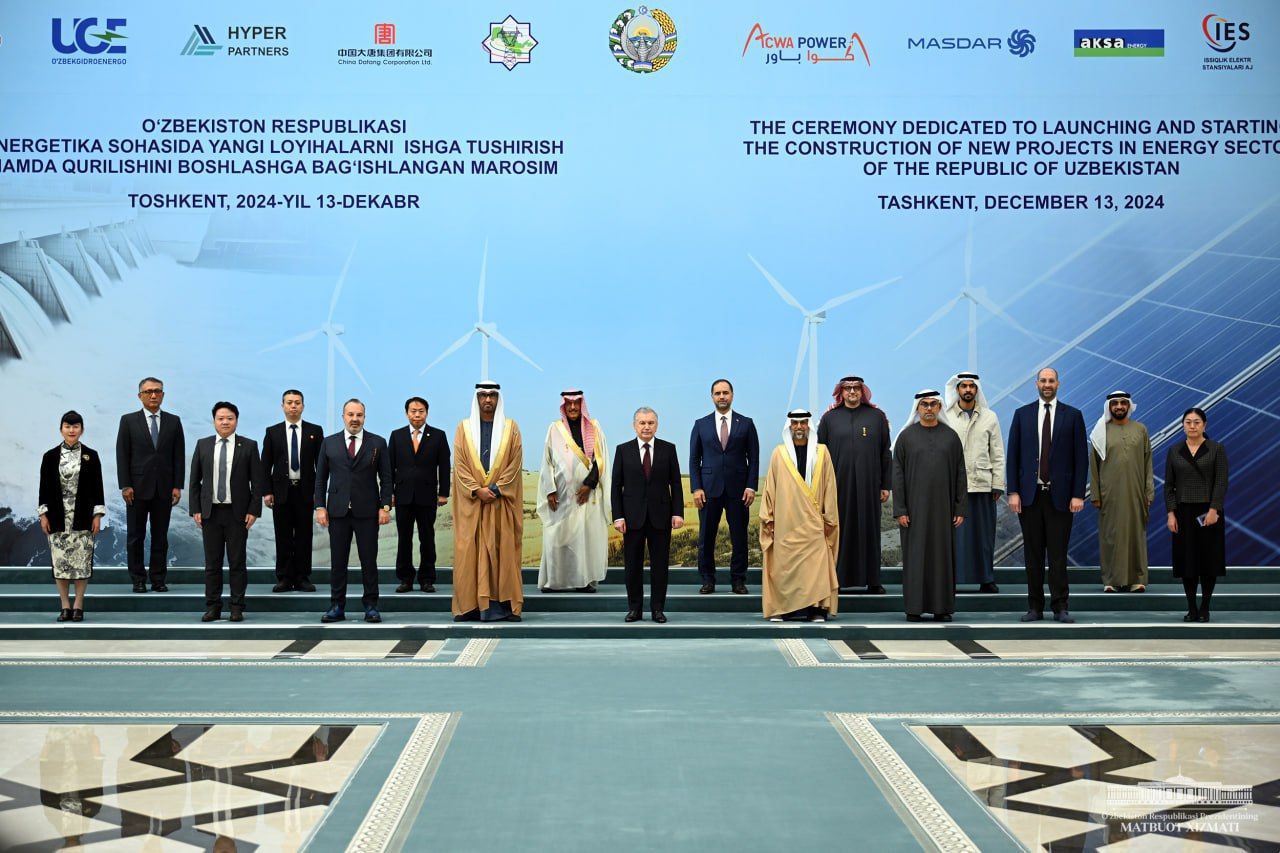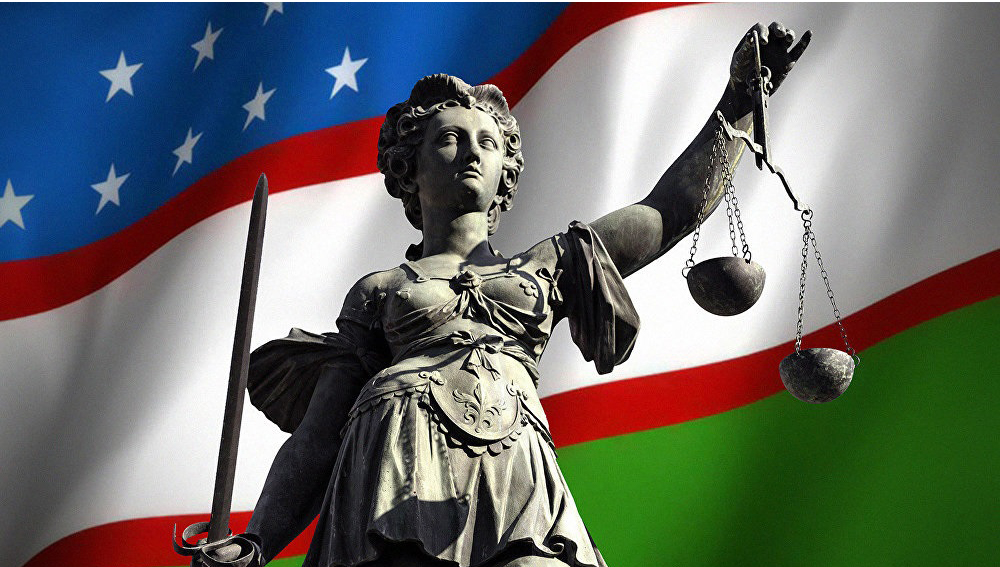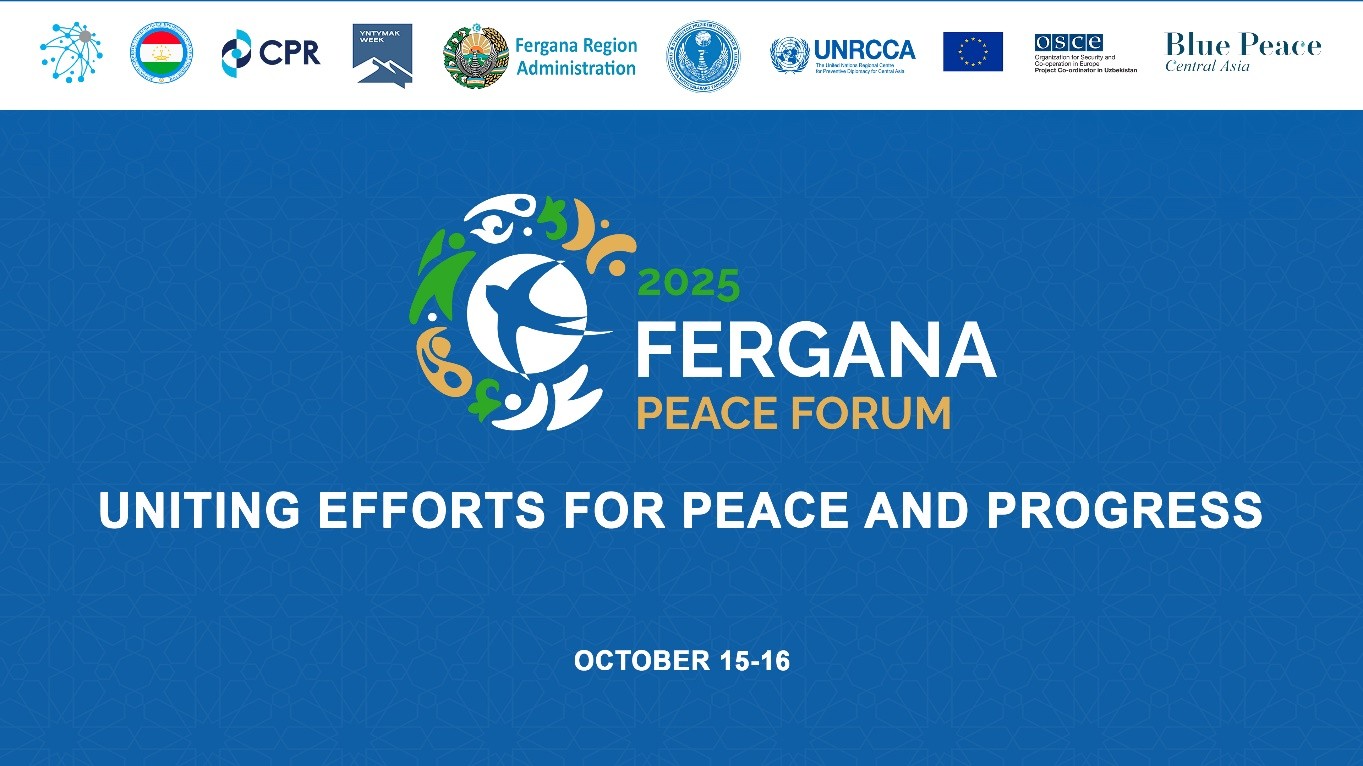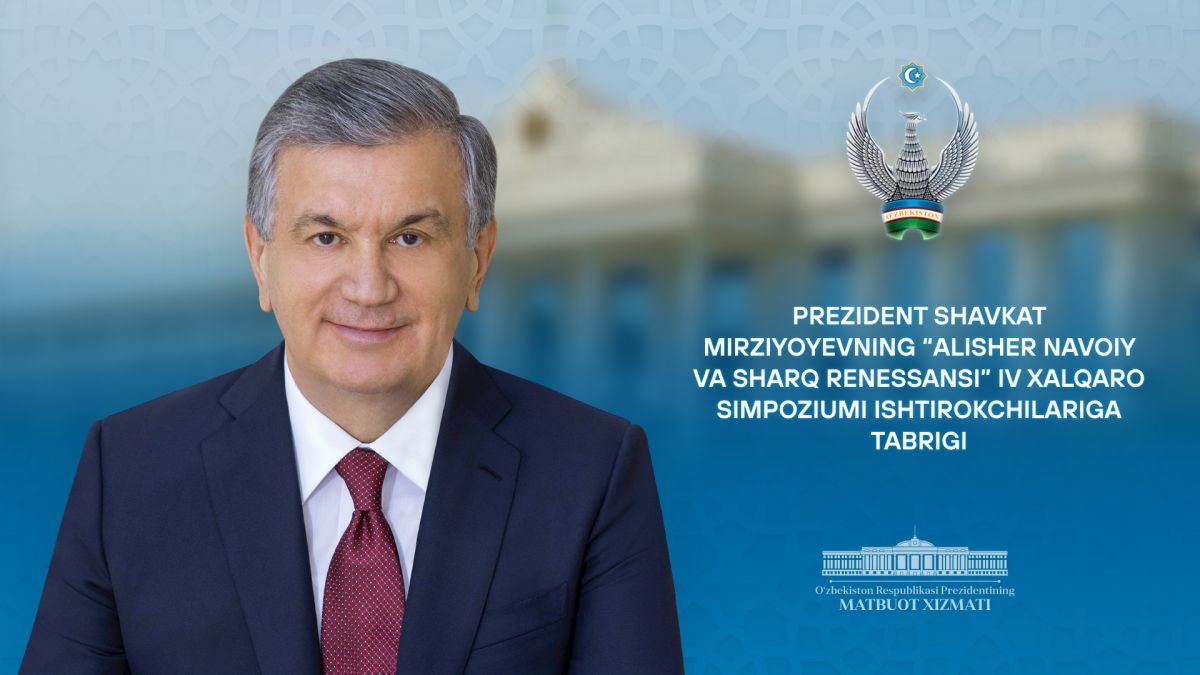Phone
Consular Issues
Phone
Uzbekistan news
We recommend
UZBEKISTAN’S ELECTORAL TRANSFORMATION: EMBRACING TECHNOLOGY FOR A STRONGER DEMOCRACY
📅 26.07.2024
Uzbekistan's upcoming elections for the Legislative Chamber of the Oliy Majlis (Parliament) and the Councils of People's Deputies, scheduled for October 27th, are not just a routine event. They mark a significant milestone in the nation's democratic journey, introducing groundbreaking changes that promise to transform the electoral landscape. The recent meeting of the Central Election Commission unveiled several key innovations that will ensure greater efficiency, transparency, and inclusivity, making these elections a matter of global interest.
For the first time in the nation's history, the Legislative Chamber elections will employ a mixed electoral system, combining majoritarian and proportional representation. This change means that voters will elect seventy-five deputies directly, while another seventy-five will be chosen based on party votes. This system aims to create a more balanced and representative legislature, enhancing democratic legitimacy and ensuring a broader spectrum of political voices.
One of the most notable advancements in Uzbekistan's electoral system is the full digitization of election commission activities. The introduction of the 'E-Saylov' information system is a significant leap forward, revolutionizing the election process. This digital platform not only streamlines the process, reducing bureaucracy and document handling, but also ensures a smoother, more efficient, and transparent electoral experience. It automates interactions between election commissions, political parties, candidates, observers, and the media, providing real-time statistical data, candidate information, and interactive maps. This technological leap empowers voters with unprecedented access to essential election-related information, making the electoral process more inclusive and transparent.
Inclusivity is another cornerstone of these elections. New election legislation requires political parties to ensure that at least 40% of their candidates are women, a progressive move towards gender equality in political representation. This requirement not only aligns Uzbekistan with advanced democratic standards but also enriches the political discourse by incorporating diverse perspectives.
The elections are taking place in a context where the updated Constitution has significantly enhanced the powers of parliament and representative bodies. The Legislative Chamber's powers have increased from 5 to 12, and the Senate's from 12 to 18. Parliament's oversight functions over executive, judicial, law enforcement, and special services have also been expanded. Additionally, the leadership of local Councils of People's Deputies by hokims (governors) has been abolished, transferring 33 powers previously held by hokims to local Councils to increase their role in resolving critical state issues.
The slogan "My Choice—My Prosperous Homeland" not only captures the spirit of these elections but also reflects the unwavering commitment of Uzbekistan's leadership to democratic state-building and citizen empowerment. With over 120,000 election commission members, 70,000 citizens, and numerous international observers participating, the elections are set to be a transparent and inclusive process, further demonstrating this commitment.
In conclusion, Uzbekistan is setting a remarkable precedent with its upcoming elections by embracing technological innovation and inclusivity. These initiatives will undoubtedly pave the way for a more prosperous and democratic future, showcasing Uzbekistan’s dedication to advancing democratic principles and practices.
Eldor Tulyakov,
The Executive Director,
Development Strategy Centre (Uzbekistan)
New Uzbekistan strategy – a new way of supporting the young generation
📅 08.07.2024
18.9 million of the population of Uzbekistan or 54 percent are young people and children under 30 years of age. 9.5 million of young people are male and 9.4 million are female.
More than 50 laws and regulations were adopted in 2017-2021 in order to strengthen the legal basis of state policy regarding youth in the republic, and June 30 was declared as "Youth Day ".
As a result of the socio-political and economic reforms implemented in our country in recent years, a step has been taken to a completely new level of development. Youth , culture and sports issues was established in the Senate of the Oliy Majlis of Uzbekistan , a "Youth Parliament" consisting of 100 active and enterprising young people under the Senate of the Oliy Majlis and 250 active and initiative young people under the Legislative Chamber, a commission on youth issues was established in the Legislative Chamber. 22.9 percent of business entities operating in the republic or 106 thousand 574 of them belong to young people under the age of 30 will come 21.5% of individual entrepreneurs are young people under 30 years old. Also, more than 3.5 thousand young farmers and about 7.8 thousand young craftsmen are working in the country.
In the 2019 elections to the Legislative Chamber of the Oliy Majlis of the Republic of Uzbekistan, 9 (6%) young people were elected as deputies, and 10% of local council deputies are young people.
The "Brave Boy" state award and the "Builder of the Future" medal were established to reward young people between the ages of 14 and under 30, who set an example for their peers with their activity and initiative in the social and political life of the country, as well as who have achieved great achievements in their studies and work. At the core of these practical results are consistent and effective reforms carried out on the basis of the renewed strategy of reforms and the strong will of the head of state regarding youth policy.
The strategic goal of the state youth policy implemented in the republic is to create conditions for every young person to get a free education, to carry out productive work, to realize themselves and to develop creatively, and to raise the level of social life in all aspects , which made it possible to accumulate valuable experience in our country. At this point, it should be emphasized that, along with state organizations, non-governmental organizations operating in our country are actively involved in the search for talented young people and their support. For example, it is important that one of the main directions of the state policy regarding youth is aimed at supporting the talents and abilities of young people. At the same time, in 2019, by a special decree of the President, the "Hope of the Country" fund under the President of the Republic of Uzbekistan was established. Thousands of talented young people through educational grants awarded by this foundation
Our country has the opportunity to study in prestigious universities of developed foreign countries and learn advanced foreign experience. In particular, for the 2022-2023 academic year, 420 students and masters received scholarships and grants for studying abroad from the "Hope of the Country" fund. We can see that these practical works are being carried out in accordance with the goals of the development strategy of New Uzbekistan. Because, according to the 50th goal of the development strategy for 2022-2026, through the "Hope of the Country" fund, to double the scope of sending free and creative thinking young people to study at prestigious foreign universities, in which fifty percent of young people are trained in technical, exact sciences and IT fields and conducting open selection contests for bachelor's, master's and doctoral studies in the most prestigious universities of foreign countries, bachelor's, master's and doctoral programs of foreign higher education institutions important goals such as announcing and conducting an open competition were set by the Foundation for the purpose of participation in educational programs. As a result of the practical work carried out by the Foundation, a number of young people have mastered the knowledge and skills required by the times and are applying them to a number of areas of reforms in our country.
One of the urgent tasks of this organization in the fields of education, science, technology, information technology, culture, art, sports, and entrepreneurship, and the tasks of encouraging and supporting their various initiatives.
As the President of Uzbekistan stated at the Youth Forum of Uzbekistan, "No matter what reforms we try in our country, we will first of all rely on young people like you, on your energy and determination. As you all know, today we have set ourselves huge goals. We have begun to create the foundations of the Third Renaissance in our Motherland. We consider the family, pre-school education, school and higher education as well as scientific and cultural centers to be the most important links of the Renaissance. For this reason, we are implementing fundamental reforms in these areas. I believe that in creating a new foundation for the development of our country, you, our devoted and patriotic youth, will actively participate and make a worthy contribution."
In the "New Development Strategy of Uzbekistan", which serves as a unique road map of the renewed reforms aimed at realizing the potential of such determined young people.
One of the priority directions of the state policy regarding youth in our country is the issue of ensuring youth employment, providing them with education, and training them in the profession. During the meeting with young people within the framework of the 2021 Youth Forum, the head of state asked for new and very relevant proposals in this regard. In particular, from now on, governors of regions, districts and cities, ministers and responsible leaders should hold regular meetings with young people, governors should develop and implement "road maps " aimed at solving the problems of young people, and report to local councils on this issue every six months. it was decided to give and determine the plans for the next six months.
An important initiative was put forward at the forum, such as the organization of vocational and entrepreneurship training for unemployed and unorganized youth within the framework of the "Youth: 1+1" program. Based on the principle "Each entrepreneur helps young people", the initiative to connect one unemployed youth to one entrepreneur was actively supported by many of our entrepreneurs. The head of state approved this noble action, which can provide employment to at least 500,000 young people.
Within the framework of this initiative, during the past period, a number of activities have been carried out to train young people, provide them with jobs, and direct them to entrepreneurship, so that the level of unemployment among young people is significantly decreasing.
In this place, in the following years, in order to further accelerate youth reforms, including reducing unemployment, further expanding the scope of vocational training, and providing comprehensive support to talented young people, with the Resolution of the Cabinet of Ministers dated January 18, 2021 "A youth-oriented state in Uzbekistan Policy Development until 2025" Concept was approved. According to it, as a result of the statements of the state policy on youth, opportunities will be created to further strengthen the economic potential of the country and to widely apply advanced practices.
And also it is expected that by 2030, Uzbekistan will be among the first 30 advanced countries of the world according to the PISA (The Program for International Student Assessment) rating .
At the same time, adaptation of educational programs to international standards (PISA, STEAM), coverage of children in pre-school educational institutions, youth comprehensive schools and higher educational institutions will be gradually increased due to the expansion of opportunities for non-state educational institutions. In particular, 80 percent of children under 3-7 years of age in the republic are enrolled in pre-school education organizations.
To increase the cultural level of young people, the number of libraries, theaters, cinemas, museums, parks and other cultural institutions will be gradually increased, and the capacity of sports facilities will be increased by 30% by creating conditions for young people to engage in mass sports.
Conditions will be created for youth to engage in public sports in neighborhoods; IT-parks will be established in all regions, Digital technology training centers will be established in districts (cities), about 200,000 young people will be trained on the basis of the "One million Uzbek programmers" project.
Conditions will be created for young people to use high-quality, fast and cheap Internet services, provision of double growth of communication and information services will be the most important results of the "Youth of Uzbekistan - 2025" concept.
In conclusion, it can be said that by 2030, our country will become one of the "countries with an income above the average", the country's gross domestic product will exceed four thousand dollars per capita, and our economy will double from its current state. The effective implementation of the concept "Youth of Uzbekistan - 2025", which is an important legal basis, is of great importance. The fact that young people of any country have intellectual potential, knowledge and modern profession remains an important factor of the country's development.
Asrorjon Sattorov,
The University of Public Safety of the Republic of Uzbekistan Associate professorUzbekistan’s Business Climate Analysis for 2025 – A CERR Study
📅 04.02.2026
Throughout the year, the business climate remained in positive territory, with an annual average of 57 points, indicating an overall favorable business environment in Uzbekistan.
The Center for Economic Research and Reforms (CERR) presented the results of its 2025 business climate analysis, based on monthly nationwide surveys of entrepreneurs. Using the collected data, a composite Business Climate Indicator was constructed, reflecting assessments of current business conditions as well as expectations for the next three months.
Dynamics of the Composite Business Climate in Uzbekistan
According to the results of 2025, the annual average value of the Composite Business Climate Index in Uzbekistan amounted to 57 points on a scale from −100 to +100, which is 7% higher than in 2024. The growth was primarily driven by improved assessments of current conditions. The annual average value of the Current Business Conditions Index increased by 22% and reached 47 points.
At the same time, the Expectations Index declined slightly from 68 to 66 points, while remaining at a relatively high level. This reflects a certain degree of caution among enterprises regarding future prospects amid an overall improvement in perceptions of current conditions.
Over the year, the dynamics of the Composite Business Climate Index were uneven. The highest value was recorded in June at 63 points, while the lowest level was observed in January at 52 points. Fluctuations during the year reflected both seasonal factors and businesses’ adaptation to rapidly changing economic conditions.
By the end of the year, a high level of optimism among enterprises persisted. In December, the Business Climate Index stood at 58 points, increasing by 2 points compared to the end of 2024.
Sectoral and Regional Dynamics of the Business Climate Index
From a sectoral perspective, improvements in the business climate were recorded across most sectors of the economy in 2025. In the services sector, the index reached 58 points, representing an increase of 14.7%. In construction, the index stood at 57 points, up by 14.2%, while in industry it reached 54 points, increasing by 6.8%.
In agriculture, the index remained virtually unchanged at 56 points, indicating the persistence of previously established assessments of business conditions in this sector.
From a regional perspective, the annual average Business Climate Index increased compared to the previous year in 11 regions of the republic. In seven regions, the annual average value of the index reached 57 points.
The most pronounced improvement in business climate conditions was observed in Kashkadarya region, where the index increased by 27%, followed by Jizzakh region with a 23% increase and Khorezm region with a 17% increase. In the Republic of Karakalpakstan, growth amounted to 19%.
In Samarkand region, despite a slight decline in the index, the annual average business climate remained in positive territory at 51 points. In Tashkent region, the indicator remained unchanged at 44 points.
Business Expectations Regarding Price Dynamics and Demand
In terms of business expectations, inflationary and market assessments remained moderate in 2025. On average, 23% of companies expected price increases in the near term, which is 2 percentage points lower than in 2024.
During the year, the share of entrepreneurs expecting price increases fluctuated within the range of 18–27%, reaching a peak in April and the lowest levels in September and December. The highest price expectations were observed among enterprises in agriculture and construction, reflecting sector-specific cost structures as well as the impact of seasonal and weather-related factors.
At the same time, assessments of market conditions remained relatively strong. On average, 66% of entrepreneurs expected an increase in demand for goods and services, while 57% of companies planned to expand their workforce. Overall, the results indicate the persistence of positive expectations regarding business activity and employment, alongside more restrained assessments of price dynamics.
Assessments of Demand and Employment
The Employment Index in 2025 amounted to 43 points, corresponding to a 12% increase. The most significant growth was recorded in the services sector at 14%, construction at 17%, industry at 7%, and agriculture at 11%. Throughout the year, employment dynamics remained moderate, with sustained demand for labor.
The Demand Index also showed improvement. Its annual average value reached 48 points, representing an increase of 13%. The largest contribution came from the services sector, where the index increased by 19%, while in construction, industry, and agriculture the Demand Index rose by 6% in each sector. During the year, the index remained relatively stable, with stronger positive assessments in the second half of 2025.
Barriers to Entrepreneurial Activity
Over the course of the year, a gradual reduction in barriers to doing business was observed. According to the results, 60% of entrepreneurs reported that they did not face difficulties in conducting business, which is 6% higher than in 2024.
In industry, problems related to electricity supply decreased by 4%, high tax rates by 3%, and access to financing by 3%.
At the same time, in agriculture and construction, financing-related barriers declined significantly, by 7% and 5%, respectively.
Despite the overall reduction in complaints, financing remained the main obstacle cited by entrepreneurs in construction and industry, reported by 11% of respondents in each sector.
Overall, sectoral data indicate an increase in the share of entrepreneurs who do not face significant constraints, as well as a decline in the importance of financial and infrastructure barriers.
The Business Climate Change Indicator is constructed based on the methodology of the Ifo Institute (Germany). As part of the surveys, company managers assess current and expected changes in business activity based on developments in production, demand, prices, and other indicators.
CERR Sector for the Study of Competitiveness of Economic Sectors and Investment Activity
tel.: (78) 150 02 02 (441)
CERR Public Relations and Media Sector
tel.: (78) 150 02 02 (417)
President of Uzbekistan points to the need of enriching partnership with the UAE
📅 16.12.2024
The issues of further expansion of practical interaction and promotion of investment cooperation projects were discussed at the meeting between President of the Republic of Uzbekistan Shavkat Mirziyoyev and the delegation of the United Arab Emirates comprising Minister of Industry and Advanced Technologies Sultan Ahmed Al Jaber and Minister of Energy and Infrastructure Suhail Mohammed Al Mazroui.
At the beginning of the conversation, Sultan Al Jaber conveyed to the Head of our State sincere greetings and best wishes from the President of the Emirates Sheikh Mohamed Al Nahyan, Prime Minister of the country, Emir of Dubai Sheikh Mohammed Al Maktoum and Vice President Sheikh Mansour Al Nahyan.
In the course of the meeting, the current highest level of Uzbek-Emirati multifaceted relations was noted with special satisfaction. The volumes of mutual trade turnover, the number of joint ventures and the frequency of flights are growing. The portfolio of ongoing and promising projects with the participation of leading Emirati companies in Uzbekistan reaches $20 billion.
Green energy is the driving force behind bilateral cooperation. Today, a 500 megawatt wind farm was commissioned in Navoi region, a project implemented by Masdar.
In general, in recent years with the participation of this company power generation facilities with total capacity of 1.5 gigawatts have been commissioned in our country.
Particular attention was paid to the early preparation and implementation of major investment projects in the energy, oil and gas and chemical industries, mining, water supply, household waste processing and other fields.
The importance of continuing productive contacts at all levels and careful preparation for the upcoming high-level events was noted.
President of Uzbekistan to participate in the 80th session of the United Nations General Assembly in New York
📅 22.09.2025
On September 20-24, President of Uzbekistan Shavkat Mirziyoyev will pay a working visit to the city of New York to attend the events of the 80th jubilee session of the United Nations General Assembly.
According to the press service of the Head of our state, President of Uzbekistan will deliver a keynote address on the first day of organizing the general debate of the UN General Assembly plenary session.
It’s noteworthy that during the current jubilee session of the UNGA topical issues of ensuring global security and stability, achieving Sustainable Development Goals, reforming the system of the UN and international financial architecture, combatting the consequences of climate change and other modern challenges, will be reviewed.
On the sidelines of the summit, the Leader of Uzbekistan will hold talks with the UN Secretary-General António Guterres, heads of foreign states and governments, leaders of authoritative international financial institutions.
In the framework of the business program in the United States, it’s planned to hold meetings and events with participation of the leading American companies and financial-investment structures. It’s planned to sign a package of new agreements and contracts.
Dunyo IA
Building Peace through Knowledge: Uzbekistan’s Expanding Cooperation with UNESCO
📅 29.10.2025
Today, Uzbekistan continues to steadily strengthen its cooperation with the international community in education, science, culture, and innovation. In this process, the country’s partnership with UNESCO holds a special place. Uzbekistan became a member of UNESCO in 1993 – a historic step that paved the way for integrating the national education system, scientific potential, and rich cultural heritage into the global intellectual space.
The opening of the UNESCO Office in Tashkent in 1996 marked a new milestone in bilateral relations. Moreover, the National Commission of the Republic of Uzbekistan for UNESCO was established to ensure sustainable cooperation, which has since become an active platform for dialogue and partnership.
Throughout this collaboration, Uzbekistan has consistently implemented international norms and principles in education, science, and sports. One of the important steps in this direction was the ratification, in 1997, of the 1960 Convention against Discrimination in Education, aimed at promoting equality and fairness in the education system. In the same year, Uzbekistan also acceded to the 1989 Convention on Technical and Vocational Education, which contributed to expanding opportunities for young people to acquire modern professions and practical skills, linking education closely with real life.
These measures have played a key role in strengthening Uzbekistan’s position in the global educational space and demonstrate the country’s firm commitment to promoting human capital development. By joining these conventions, Uzbekistan reaffirmed its dedication to equality and quality in education, youth health and well-being, and to aligning vocational education with international standards.
The Global Convention on the Recognition of Qualifications in Higher Education
At present, Uzbekistan is taking practical steps toward joining UNESCO’s Global Convention on the Recognition of Qualifications concerning Higher Education. This document aims to harmonize international education systems, ensure mutual recognition of diplomas and qualifications, and expand academic and scientific mobility. The initiative will help make Uzbekistan’s higher education system more open and competitive globally, enhance cooperation with foreign universities, and improve the international employability of Uzbek graduates.
On December 10, 2021, Tashkent hosted a High-Level Meeting of Experts on Strengthening Stakeholder Cooperation for the Adoption and Implementation of the Global Convention on the Recognition of Qualifications. National and international experts, government representatives, and higher education institutions discussed the significance of Uzbekistan’s accession to the convention as a key step in integrating the national higher education system into the global academic space.
UNESCO Chairs in Uzbekistan
One of the most effective areas of cooperation between Uzbekistan and UNESCO is the establishment and activity of UNESCO Chairs. Currently, there are nine UNESCO Chairs operating at higher education institutions across the country. Each of them contributes to strengthening international cooperation in education, science, culture, communication, and information, as well as to advancing research potential and promoting the principles of sustainable development.
UNESCO Chairs are established under the UNITWIN (University Twinning and Networking) Programme, launched in 1992 to encourage the exchange of experience and knowledge among universities and to expand global academic cooperation. Today, the network brings together over 700 chairs and research centers in 114 countries around the world.
In most cases, the activities of UNESCO Chairs are financed directly by the universities themselves — reflecting their aspiration to enhance academic prestige and to operate in close cooperation with the international scientific community.
A vivid example of such cooperation is the UNESCO Chair in Education for Sustainable Development at Urgench State University. The Chair has organized more than 20 events involving teachers, researchers, students, NGOs, and international experts. It has also held conferences, launched student exchange programmes, and published joint research papers. Such initiatives not only strengthen the capacity of the national education system but also promote Uzbekistan’s integration into the global scientific and intellectual community.
Rural Development and Human Potential: Supported by UNESCO and the European Union
Uzbekistan is steadily advancing international cooperation in promoting rural development, youth employment, and the enhancement of modern professional skills. A vivid example of this is the project “Development of Employment Skills in Rural Areas of Uzbekistan,” funded by the European Union and implemented by the UNESCO Office in Tashkent.
The six-year project (2020–2026), with a total budget of €9.6 million, is a clear reflection of the strong partnership between the European Union and UNESCO in supporting education reforms in Uzbekistan. The main goal of the initiative is to ensure sustainable economic growth by training specialists equipped with up-to-date knowledge and skills that meet the needs of the rural labor market.
Within the project, Uzbekistan’s agricultural education system is undergoing major modernization. Specialists are being trained in such forward-looking fields as intensive horticulture, greenhouse management, agricultural product processing and storage, water management and land reclamation, and the operation of water-saving irrigation systems — all oriented toward practical skills demanded by the modern labor market.
A significant component of the project is the development of a National Vocational Education Strategy, new occupational standards, and educational programmes in agriculture and water management. In addition, pilot educational institutions are being equipped with modern laboratories, learning facilities, and teaching technologies.
Four pilot colleges — in Qorovulbozor, Qo‘shko‘pir, G‘ijduvon, and Qizirik — have been selected to implement the project. They have received modern tractors, technical equipment, computers, and refrigeration units for agricultural product storage. Moreover, four Advanced Vocational Training Centers are being renovated and equipped with up-to-date facilities.
During implementation, the rural labor market was analyzed to assess demand for mid-level specialists. Based on the results, six pilot specializations — including Automated Water Management Systems Technician, Animal Husbandry, Greenhouse Management, Irrigated Land Reclamation, Crop Science, and Farm Management — were introduced, and student admissions began in the 2023/2024 academic year.
In May 2024, an international conference titled “National Frameworks for Quality Assurance” was held within the project, focusing on aligning Uzbekistan’s vocational education system with international quality standards and strengthening human capital.
Additionally, under UNESCO’s “Delta Framework” programme, national ICT competencies are being developed, and special training courses for teachers of pilot institutions are planned.
This initiative serves not only to modernize the vocational education system but also to foster sustainable rural development, enhance youth employability, and improve the quality of life in local communities.
Science and Innovation for a Peaceful and Sustainable Future
In recent years, Uzbekistan has witnessed growing enthusiasm for new scientific ideas, research, and innovation. A shining example of this is the “InnoWeek.Uz” International Week of Innovative Ideas, held annually since 2018. Each year, the event provides a unique platform for bridging science and practice, engaging young researchers in innovation, and expanding global scientific cooperation.
“InnoWeek.Uz” has become a true celebration of creativity, discovery, and technological advancement — a space where scientific potential, imagination, and passion for progress converge. Creating the future through research and innovation, and opening new paths to development through knowledge, lies at the heart of this initiative.
The “InnoWeek.Uz–2024” edition marked a new milestone, featuring the “Science & Innovation for a Peaceful and Sustainable Future” Forum organized under the auspices of UNESCO. The forum brought together young scientists, researchers, and experts from around the world to exchange views on the role of science and innovation in promoting peace and sustainable development. The participants shared their research achievements and discussed new opportunities for global collaboration in science and technology.
Through their work, young scientists inspired others by seeking solutions to modern challenges, developing technologies that serve human welfare, and advancing harmony between nature and society. Discussions at the forum highlighted the role of innovation in economic and social progress, the contribution of science to peacebuilding, and the prospects for future scientific cooperation.
All these initiatives implemented in cooperation with UNESCO deepen Uzbekistan’s ongoing reforms in education, science, and culture, while strengthening the country’s ties with the global community.
Today, knowledge and creativity, tradition and innovation, national values and modern approaches unite in Uzbekistan with one shared goal — progress and a sustainable future.
As UNESCO’s noble motto proclaims, “Building peace through education, science and culture” — this principle embodies both the moral and practical essence of Uzbekistan’s policy today. The nation continues to move forward with determination, fostering peace, development, and prosperity through enlightenment and science.
Kongratbay Sharipov,
Minister of higher education, science and innovationof the Republic of Uzbekistan
The priority of water resource management reform in Uzbekistan is water conservation and its rational use
📅 24.06.2024
Today, as global climate changes are observed, the population is growing, and industrial sectors are rapidly developing, the value of water resources is increasing not only in the Central Asian region but also worldwide.
According to the data, over the past 30 years, the air temperature in our region has increased by one and a half degrees, as a result of which about a third of the centuries-old glaciers in the highlands have melted, and the volume of water in rivers and streams has decreased slightly.
If current climate trends continue, in the next twenty years, the flow of the two large rivers, Amu Darya and Syr Darya, may decrease by 15%. This would result in a 25 percent reduction in per capita water availability and agricultural crop yields.
These are not just numbers, but indicators related to the fate and well-being of the people living in the region.
According to scientists, by 2040 in some areas of Central Asia, the need for water resources will triple. Over time, economic damage could reach 11% of the region's gross domestic product. The United Nations (UN) warns that countries in the region are currently losing up to US$2 billion a year due to water scarcity and inefficient use. Therefore, if appropriate measures are not taken now, it is inevitable that the countries in our region will face dire consequences of water shortages.
Under the leadership of the President of Uzbekistan, Shavkat Mirziyoyev, special attention is being paid to the comprehensive development of the water management sector in our republic, the rational use of existing water resources, including the widespread introduction of digital and water-saving irrigation technologies, and remarkable results are being achieved in this regard.
In his speech at the 78th session of the UN General Assembly on September 19, 2023, the leader of Uzbekistan emphasized the issue of water resource shortages in Central Asia, supported the establishment of the position of the UN Secretary General's Special Representative on Water Resources, and proposed creating a platform for water-saving technologies in Central Asia. In the process of using the "United Nations-Water Resources" mechanism, he emphasized his support for attracting and implementing the most advanced technologies.
This means that Uzbekistan will take the initiative in creating a platform for water-saving technologies in Central Asia, while also seeking to involve the international community in the process.
For more than 30 years since its establishment, the International Fund for Saving the Aral has become the most important platform for regional cooperation in the fields of water management and ecology. In the face of new risks and threats arising because of global climate change, the role and importance of the fund are increasing.
On September 15, 2023, President Shavkat Mirziyoyev put forward the initiative to develop and implement new, agreed-upon decisions for the long-term perspective within the framework of this structure at the meeting of the Council of Heads of the Founding States of the International Fund for Saving the Aral held in Dushanbe. Reflecting the spirit of today, he emphasized the need to further improve the fund's legal framework and modernize its institutional mechanisms.
It should be noted that in the country’s domestic policy over the past seven years, at the initiative of the President, large-scale reforms in the water sector have been implemented. To manage state policy in the field of water management, a separate Ministry of Water Resources was created and the Concept for the development of the industry for the period until 2030 was approved.
As a logical continuation of these reforms and to solve systemic problems at the middle and upper levels of the water management system, on May 7, 2024, the President of Uzbekistan signed the decree "On Setting Priorities for the Introduction and Development of a Modern Management System in Water Resources." According to this document, the activity of the Ministry of Water Resources was divided into three parts, setting up a vertical management system. At the upper level is the management of the state water policy, the regulator; the middle level is engaged in the operation and construction of water management facilities and the introduction of business processes into the sector; and the lower-level handles supplying water directly to consumers.
In the middle stage, an agency for the exploitation of water resource facilities is being set up that operates as an independent legal entity. The agency includes the Ministry of Water Resources of the Republic of Karakalpakhstan and regional irrigation systems basin departments, main canals, water reservoirs, and pumping station utilization departments, as well as land-improvement expeditions.
The department for the implementation of water management projects participates as a customer in projects funded by the budget and foreign investments. The decree envisages a 22% increase in the salary of middle- and high-level employees working in the ministry system, starting on July 1, 2024, and a 60% increase starting in 2025. It should be mentioned that starting in January 2024, the salary of lower-level employees has been doubled, and several incentive mechanisms are being used.
As a result of the accurate calculation of available water resources, special attention is paid to the introduction of water-saving technologies, resulting in abundant and high-quality harvests from agricultural crops. Nevertheless, the prevention of water scarcity remains one of the most important directions for Uzbekistan.
Uzbekistan is a country with a large water infrastructure in the Central Asian region; the total irrigated cropland exceeds 4.3 million hectares.
As one of the five priority directions of the "Uzbekistan-2030" strategy, which defines the goals of sustainable development of the country, the task of saving water resources and environmental protection is emphasized, placing great responsibility on water management employees.
To reduce water losses in irrigation networks, the year 2024 was announced as a "breakthrough year for concreting canals" in the water industry at the initiative of the President. For this purpose, 5,000 kilometers of irrigation networks, of which 1,500 kilometers are main and inter-farm and 3,500 kilometers are internal, have been concreted this year. To date, 525 kilometers of canals have been reconstructed, of which 355 kilometers have been concreted. The length of canals concreted by clusters and farms has exceeded 13,500 kilometers.
In recent years, the areas covered by water-saving technologies in the country have reached 1.3 million hectares. Of this, drip irrigation accounts for 478,000 hectares, sprinkler irrigation for 55,000 hectares, and discrete method irrigation for 29,000 hectares. Over 700,000 hectares have been leveled using laser leveling equipment.
Work on the introduction of water-saving technologies, which started in previous years, is being continued consistently. This year alone, it is planned to introduce cost-effective technologies on 500,000 hectares of land and to fully cover all irrigated farming areas in the country with such technologies by 2030.
All possibilities and resources are being used for this. Today, the number of local enterprises producing equipment and components for water-saving technologies in Uzbekistan has reached 55, with plans to increase this number in the future.
In recent years, 11,446 "Smart Water" devices, online water level monitoring meters in 1,704 pumping units, and online monitoring of seepage water levels have been installed in 6,746 reclamation monitoring wells. To manage water resources from one point without human intervention, the management processes of 65 large water management facilities were automated.
It is planned to save 8 billion cubic meters of water in 2024 through the concreting of channels, the introduction of water-saving technologies, the digitization of the industry, the implementation of "smart" devices, and effective water management.
It should be noted that 60 percent of the irrigated cropland in the country is supplied with water through pumps. There are more than 1,600 pumping stations in the Ministry's system, and due to their modernization, installation of modern energy-saving devices, and the introduction of public-private partnerships, electricity consumption has been reduced by 1.5 billion kWh in the last seven years.
In the coming years, the total cost of the water industry will be $6.0 trillion. Agreements for 463 public-private partnership projects worth significant amounts in soums were signed. In 2023, all water management facilities in five districts and 300 pumping stations across the republic will be transferred to the private sector.
This transfer increases work efficiency, saves up to 30% on electricity at pumping stations, and reduces salary deductions by 13%.
The "Irrigators' School" was launched in cooperation with the Ministry of Water Resources, the "Tashkent Institute of Irrigation and Agricultural Mechanization Engineers," the National Research University, and "Agrobank." Highly qualified specialists from abroad are organizing one-week-long free training courses for designers, contractors, managers of farms, and cluster enterprises from all districts of the republic.
In short, life itself proves that the only solution to mitigate the water shortage in our region is to save water and use it wisely.
Press service of the Ministry of Water Resources
of the Republic of Uzbekistan
Further tasks for the development of competition were discussed
📅 06.08.2024
On August 5, President Shavkat Mirziyoyev familiarized himself with the presentation of measures aimed at developing competition.
The ongoing efforts to reduce the state presence in the economy and curb large monopolies have a positive impact on the competitive environment. In particular, over the last five years the competitive environment has improved in more than 25 goods. Exclusive rights that restricted competition in 7 types of activities have been abolished. The number of enterprises with state participation decreased by 42 percent, while the number of private business entities increased by 1.6 times.
Last year the Law "On Competition" was adopted in a new version. The Committee for Competition Development and Consumer Protection was given additional effective powers. According to the studies conducted on this basis, in some organizations there are such phenomena as anticompetitive decision-making, direct contracts, use of dominant position in trade.
In this regard, a Competition Development Framework has been developed to enhance the coverage and effectiveness of competition in this area. This concept defines further tasks to reduce government involvement in the economy, liberalize market access and create a level playing field for entrepreneurs.
Thus, it is planned to abolish regulations and redundant requirements that impede the free access of business entities to markets. It is envisaged to introduce relaxations aimed at reducing the regulatory burden, in particular, permitting procedures and licenses will be replaced by compulsory liability insurance.
Independent market regulators will be introduced in the spheres of natural monopolies. The participation of natural monopoly entities will be limited in commodity markets related to natural monopolies and where there is an opportunity to develop competition.
The scale of direct public procurement will be reduced, and it will be completely switched to competitive methods. It is envisaged to abolish the provision of state aid of an individual nature that restricts competition, including exclusive rights, privileges, preferences and relaxations.
By means of mutual integration of information systems of state bodies, digital monitoring of all links in the chain of pricing of socially important products will be established. A system of non-disclosure and encouragement of persons who have provided information on cases of anticompetitive agreements and actions, collusions will be introduced.
In general, as a result of the implementation of this concept, measures will be taken to gradually eliminate 17 types of state monopoly in a number of areas, such as energy, oil and gas sector, water management, road construction, railroad and airport services. Anti-competitive actions in public procurement will be curbed and transparency of these processes will be ensured. Commodity exchanges will increase supply and expand the choice opportunities for buyers.
The President gave additional instructions to continue work in this area, to ensure free market principles, and to develop entrepreneurship. The need to reduce the state's share in the economy and to gradually transfer certain functions to the private sector was emphasized. The task has been set to constantly analyze the state of competition on commodity, financial and digital markets and to make proposals to improve procedures.
Over the last three years, over 2,000 acts contradicting the competition law have been identified locally. In most cases, these are documents of local khokimiyats and ministries. In this regard, it was noted that it is necessary to intensify the work of territorial departments of the Committee for Competition Development and improve the qualification of personnel.
It was also pointed out the importance of increasing openness and strengthening the work on publicizing the activities of the Committee. It was emphasized that this is important to prevent violations of the law and to create a transparent environment.
18 new energy facilities commissioned, 6 facilities are launched for construction
📅 16.12.2024
President of the Republic of Uzbekistan Shavkat Mirziyoyev on December 13 took part in a solemn ceremony dedicated to the launch of new energy capacities and the beginning of construction of a number of facilities.
These projects are part of a large-scale work aimed at strengthening the potential of the country's energy system. Last December, five solar and one wind power plants were put into operation. Many new projects were launched during the Head of State's visits to the regions.
Today, 24 projects worth more than $7 billion have been launched. In particular, in Bukhara, Navoi, Namangan and Tashkent regions, 5 solar and wind power plants with a total capacity of about 2.3 thousand megawatts, as well as 5 high-voltage substations have been connected to the network.
For the first time in Uzbekistan, an energy storage system with a capacity of 300 megawatts was created in Andijan and Fergana. A 400 megawatt power plant was put into operation in Kashkadarya, and a modern cogeneration plant was put into operation in Tashkent, and in Andijan, Surkhandarya and Tashkent regions - four small hydroelectric power plants.
In addition, construction of 6 energy facilities with a total capacity of 2.5 gigawatts has started in Fergana, Samarkand, Navoi, Tashkent regions and Tashkent city.
These new projects will generate an additional 9.5 billion kilowatt hours of electricity, save 2.5 billion cubic meters of natural gas and prevent the emission of 4.6 million tons of harmful gases in the coming years.
Most importantly, over 4 million households will be provided with uninterrupted and clean energy.
This will also set the stage for $4 billion worth of value creation in other sectors of the economy.
In total, in 2025, our country will produce 84 billion kilowatt-hours of electricity, which is 25 billion kilowatt hours or 1.5 times more compared to 2016.
Speaking at the ceremony, President Shavkat Mirziyoyev emphasized that all these projects are implemented through foreign direct investment. Gratitude was expressed to companies from the United Arab Emirates, Saudi Arabia, Türkiye, China and Germany, as well as international institutions such as the Asian Development Bank, the Asian Infrastructure Investment Bank, the Islamic Development Bank, the European Bank for Reconstruction and Development and the World Bank for their fruitful cooperation.
Thanks to the open access of the private sector, Uzbekistan's energy sector has attracted about $20 billion of foreign direct investment over the past five years.
Twenty-four independent energy producers have started to operate in the sector, where previously only the state was present.
In particular, large solar and wind power plants with a total capacity of 3,500 megawatts, equivalent to 10 billion kilowatt-hours, were launched in the green energy sector. This increased the share of “green energy” in the energy system to 16 percent.
As is known, last year the country's GDP reached the historic figure of $100 billion for the first time. By 2030, Uzbekistan's economy should grow to $200 billion.
This will increase the demand for electricity by 1.5 times over the next five years. In addition, under the Paris Agreement, it is planned to reduce harmful gas emissions by 35 percent by 2030.
The President outlined the priority areas of work in the energy sector.
First, 19 thousand megawatts of additional “green capacity” will be built by 2030, and the share of renewable energy will be increased to 54 percent. Already by 2025, 18 solar and wind power plants with a capacity of 3.4 thousand megawatts and energy storage systems with a capacity of 1.8 thousand megawatts are planned. This will increase green energy production to 12 billion kilowatt-hours next year. Also within two years, a large-scale project will be implemented in cooperation with private partners to create more than 2,000 small and micro-hydroelectric power plants.
Second, liberalization of the electricity market will continue. By the end of next year, it is planned to create a competitive wholesale electricity market. Public-private partnership will be introduced in the sphere of energy distribution, and $4 billion of investments will be attracted for the modernization of networks. The first project of transferring the management of regional power grids to the private sector has been developed in Samarkand region, and an international tender has been announced.
Third, the expansion of international cooperation in the field of “green energy”. Within COP-29, agreements were signed with Kazakhstan, Azerbaijan and Saudi Arabia on joint export of “green energy” to Europe. Jointly with neighboring countries a single platform has been launched to ensure the stability of the regional energy system.
Fourth, development of “green energy” as a new driver for other sectors of the economy and improvement of living standards of the population.
Solar panels with a total capacity of 1,000 megawatts have already been installed, which makes it possible to produce 1.5 billion kilowatt-hours of electricity annually. Support for “green” initiatives will continue with the introduction of dual education for the training of specialists.
- Today's event opens a new page in the history of our country's energy sector. These projects will not only ensure economic growth, but also will create an environmentally friendly and sustainable future for our descendants - said Shavkat Mirziyoyev.
The ceremony was addressed by Minister of Energy and Infrastructure of the United Arab Emirates Suhail Mohamed Al Mazrouei, Minister of Energy and Natural Resources of Türkiye Alparslan Bayraktar and Minister of Energy of the Kingdom of Saudi Arabia Prince Abdulaziz bin Salman Al Saud.
By pressing a symbolic switch, President Shavkat Mirziyoyev launched the operation of 18 energy facilities and construction of 6 new projects.
New reforms in the judicial and legal system of Uzbekistan are aimed at practical results
📅 01.07.2024
The main goal of state policy in the penal sphere in Uzbekistan is aimed at liberalizing punishment and the system of its execution. Based on this, a number of strategic objectives have been identified. In particular:
Firstly, crime, improvement and liberalization of criminal and criminal-procedural legislation, decriminalization of specific criminal acts, humanization of criminal punishments and the procedure for their execution were determined as one of the priority directions for improving the state and society building system in the Action Strategy of the Republic of Uzbekistan in 2017-2021.
Secondly, the Resolution of the President of the Republic of Uzbekistan “On the Concept of improvement of criminal and criminal-procedural legislation” was adopted on May 14, 2018. It was aimed at improving the criminal responsibility and punishment system, in particular, eliminating forms and types of punishments that do not meet to modern requirements, and preventing crimes. The task of introducing types of punishment and other legal measures, simplifying punishment or expanding the norms regulating the conditions of criminal responsibility or exemption of person from liability was established.
Thirdly, the implementation of qualitatively new mechanisms for ensuring the unconditional observance of the rights of prisoners, respect for their honor and dignity, priority tasks such as further expansion of the scope of rights of convicts in accordance with generally recognized international standards were determined in the Decree of the President of the Republic of Uzbekistan dated on November 7, 2018 “On measures to radically improve the criminal and executive legislation”.
Fourthly, the necessity to ensure labor, social security and other internationally recognized rights of convicts, people who have served their sentences, to introduce effective mechanisms to help their social adaptation and reintegration into society, and widely introducing the principle of humanitarianism into the penal system was noted as the essential and necessary condition for the development of the law priority principles in the Development Strategy of New Uzbekistan in 2022-2026;
Fifthly, the task of reducing the practice of imprisonment from 30% to 20% was strengthened as the main criterion for reforms in the judicial system in the strategy “Uzbekistan – 2030”.
Sixthly, new version of the Constitution of the Republic of Uzbekistan was adopted pursuant to the Referendum on April 30, 2023, in which human rights and freedoms are guaranteed based on the universally recognized norms of international law, as well as the prohibition of the death penalty.
Meanwhile, 3 laws, 2 decrees and 7 resolutions of the President of the Republic of Uzbekistan, more than 20 resolution and decrees of the government, more than 15 departmental and interdepartmental regulatory legal documents aimed at further improving the system of execution of punishment for the implementation of these strategic goals were accepted.
As a result, the range of rights and legal interests of the prisoners were expanded and brought into line with international standards.
It is worth noting that at the initiative of the President Shavkat Mirziyoyev, the work on ensuring the rights and freedoms of prisoners serving sentences in penitentiary institutions has reached a completely new level.
In particular, based on the Decree of the President of the Republic of Uzbekistan dated on April 2, 2021, “On additional organizational measures to further improve the activities of internal affairs bodies in the field of ensuring public safety and fighting crime”, the followings were determined:
to increase the effectiveness of educational work on the moral correction in order to prevent re-offending, to improve the system of execution of punishment, to ensure the protection of the rights, freedoms and legal interests of prisoners;
to ensure the priority importance of honor and dignity of prisoners, to introduce transparent and more effective legal mechanisms of moral education and labor training for social adaptation of convicts to society in the future;
to radically improve the criminal-executive legislation, taking into account modern international standards and advanced foreign experience;
to ensure strict discipline and legality in penitentiary institutions and investigative detention centers, to prevent corruption, and fully automate the processes of monitoring the condition of prisoners;
to create opportunity to purchase items in the prescribed manner by prisoners in penitentiary institutions, and their relatives as well, through electronic stores based on free market mechanisms;
to maintain the electronic database of information about the behavior and personality of each prisoner and fully digitize the process of distribution of prisoners in order to correctly determine the tactics of re-educating prisoners and prevent them from committing crime.
A number of practical results have been achieved as a result of the comprehensive reforms implemented in the field of criminal punishment.
Particularly:
Firstly, the restrictions on the visits of juvenile prisoners with their parents were removed, and female prisoners were given the right to visit their children in orphanages on unlimited basis.
Secondly, special attention was paid to the education and vocational training of prisoners, and the activity of "Master-Apprentice" schools was launched in penitentiary institutions.
In fact, there are 6 general educational schools and 4 vocational centers operating in the penitentiary institutions at present. More than 2,000 convicts are trained in such schools, and more than 5,000 in the vocational centers are trained in tailoring, carpentry, furniture making, auto electrician, electrician, locksmith and other professions, and they are given certificates in 16 specialties in total.
Thirdly, according to the law “On Education"” the right to distance education was given to prisoners in penitentiary institutions.
Henceforth, the dream of the prisoners who want to get higher education was fulfilled. 25 prisoners were admitted to the prestigious national higher educational institutions, as well as branches of international higher education institutions in our country in 2021-2023.
Fourthly, special attention was paid to the social welfare of prisoners, and the right to pension was guaranteed (as of January 1, 2024, pensions were granted to 676 prisoners) and it was determined that social insurance would not be deducted from wages. The number of phone calls, visits and meetings of the prisoners has almost doubled.
Fifthly, in the direction of expanding the political rights of prisoners, the requirements of the International Covenant on Civil and Political Rights, as well as the positive experiences of France, Germany, the Netherlands, the United Kingdom, Germany, and Turkey, are implemented into national legislation, and the right to vote was given for the first time for prisoners who are serving sentences for crimes of low social risk and less serious crimes.
On this basis, 3,619 prisoners in the 2019 Parliamentary elections, 8,203 prisoners in the 2021 Presidential elections, and 9,738 prisoners in the 2023 referendum exercised their political right to vote.
Sixthly, the procedure for the visit of the Representative of the Oliy Majlis of the Republic of Uzbekistan on Human Rights (Ombudsman), diplomatic corps, representatives of international, republican and local non-governmental non-profit organizations, foreign and local mass media to prisons was established.
Seventhly, With the Decree of the President of the Republic of Uzbekistan “On the Development Strategy of New Uzbekistan in 2022-2026”, a system of providing “initial socio-material support package” was introduced to help citizens who have served their sentences to find their place in society in the future.
Eighthly, in order to allow and support the convicts who realized the mistake of their actions, sincerely repented and resolutely chose to the path of recovery, the mechanism of “pardon” was established by the head of our state which is considered clear example of forgiveness and nobility of our nation.
In particular, in 2017-2024, a total of 7128 convicts were pardoned by the relevant decrees of the President of the Republic of Uzbekistan, 219 of them were foreign citizens and 377 were women.
Ninthly, according to the relevant decree of the government, certain information in prisons that cannot be disclosed until now, including:
the number of persons detained in penitentiary institutions and investigative detention centers;
the number of penitentiary institutions and investigative detention centers and their locations;
the production activities of penitentiary institutions, the goods produced by them according to the nomenclature and expressed in money;
the number of deaths among persons detained in penitentiary institutions and pretrial detention centers;
information on the number of prisoners kept in penitentiary institutions and subjected to coercive medical measures was disclosed.
Admittedly, in addition to the norms of international law, the United States, the countries of the European Union, Russian Federation, Moldova, Kazakhstan, Belarus and Kyrgyz Republic and a number of positive experiences of other countries were taken into account in the improvement of criminal law and the mechanisms of its practical implementation, as well as in the expansion of the basic rights and freedoms of prisoners.
In addition, the provisions of the international legal norms related to the system of execution of punishment were introduced into the criminal law. In particular, the “Minimum standard rules for dealing with prisoners” (Nelson Mandela Rules), adopted by the resolution of the United Nations General Assembly on December 17, 2015, was applied to the criminal law of the Republic of Uzbekistan.
Hence, respect for the dignity of prisoners was guaranteed, mechanisms aimed at preventing the use of torture and cruel treatment were improved. Furthermore:
the right of prisoners to receive psychological assistance was enabled;
prisoners in need of medical care were allowed to be placed in regional institutions of the Ministry of Health;
prisoners suffering from a serious illness were given the opportunity to talk over the phone and meet their close relatives based on the doctor’s permission.
At the same time, the application of disciplinary punishment was completely canceled for the disorder in case of his mental state was disturbed.
Based on the abovementioned facts, as well as on the basis of the norms of international law and the positive experiences of foreign countries, it is expedient to implement the following proposals and recommendations in the practice of law enforcement in order to improve the criminal law of the Republic of Uzbekistan:
Further expansion of the basic rights of prisoners, in particular, the use of computer tools connected to the Internet (educational, artistic, electronic books, publications, educational materials, graphic designs) connected to the global information network in specially equipped rooms, the introduction of a simplified procedure for the use of electronic state services, including notary services;
education of convicts, acquisition of profession and wide involvement of them in useful work;
raising the legal consciousness and culture, ideological views of prisoners, defining systematic measures aimed at forming immunity of intolerance to violations to them;
determining the acceptable directions of exemption from punishment in legislation;
implementation of modern forms of social adaptation and resocialization of prisoners based on the analysis of international law norms and best practices of foreign countries.
At the same time, further liberalizing crimes and criminal law, especially by expanding non-custodial sentences for juveniles, women, the elderly, and prisoners with disabilities, is the best way to improve the most effective national crime-fighting system today.
In short, improving the law enforcement practice and legislation in the judicial executive system, and consistently continuing the ongoing reforms are aimed at building democratic legal state and fair civil society in our country, strengthening the guarantees of human rights protection, and ensuring the rule of law in society.
Khatamov Rustam
Head of the Academy of the Ministry of internal affairs of the Republic of Uzbekistan, Doctor of philosophy in law sciences (PhD), Associate professor, Colonel
Fergana to host the First Fergana Peace Forum
📅 13.10.2025
The first session of the Fergana Peace Forum, titled “Fergana Valley: Uniting Efforts for Peace and Progress” is scheduled for October 15–16, 2025, in the city of Fergana.
Next week, the city of Fergana will transform into a focal point for international dialogue and cooperation, hosting key stakeholders from across the region and beyond. This gathering underscores the city’s growing importance as a center for promoting peace, mutual understanding, and collaborative development in Central Asia.
The Forum will be organized by the Institute for Strategic and Interregional Studies under the President of the Republic of Uzbekistan (ISRI), jointly with the Center for Progressive Reforms, the Organization for Security and Co-operation in Europe (OSCE), the International Water Management Institute (IWMI), and the Peacebuilding Hub — a platform that brings together reputable international organizations specializing in peacebuilding and social cohesion.
Entitled “Fergana Valley: Uniting Efforts for Peace and Progress” the Forum is organized in partnership with the National Institute for Strategic Initiatives under the President of the Kyrgyz Republic, the Center for Strategic Studies under the President of the Republic of Tajikistan, and Institute of studying of the problems of Asian and European countries of the National Academy of Sciences of Tajikistan.
The two-day forum will bring together over 300 participants from Central Asian countries, the Commonwealth of Independent States (CIS), as well as from Asia, Europe, and the Americas.
Among the high-level guests are Head of the UNRCCA Kaha Imnadze, European Union Special Representative for Central Asia Eduards Stiprais, Director of the OSCE Conflict Prevention Centre Kate Fearon, Secretary-General of CICA Kairat Sarybay and Deputy Secretary-General of the SCO Sohail Khan.
A key feature of the upcoming session will be its inclusive nature, with participation from representatives of civil society, youth organizations, women’s associations, as well as expert and academic communities.
Leading international peacebuilding institutions such as Berghof Foundation (Germany), the Martti Ahtisaari Peace Foundation (Finland), the PeaceNexus Foundation (Switzerland), and the Stockholm International Peace Research Institute (SIPRI) will also be at the Forum. Reflecting a commitment to be inclusive, the Forum will also draw participation from youth, women groups and the academia circle.
The Forum aims to create a standing platform for promoting dialogue, mutual trust, good-neighborly relations, and for developing a shared strategy for the development of the Fergana Valley.
The forum’s agenda includes discussions on ensuring stability and sustainable development in the Fergana Valley, unlocking its economic potential, strengthening cultural and humanitarian ties, and expanding the roles of the private sector, youth, and civil society.
The Forum will see the first observation of the “Yntymak Day” (“Day of Unity”) which celebrates the unity in diversity spirit of communities in Fergana Valley.
Among the anticipated outcomes of the forum is the adoption of a Communiqué calling for the establishment of a unified space of friendship, good-neighborliness, and sustainable development in the Fergana Valley.
At the 80th session of the United Nations General Assembly, the President of Uzbekistan, Shavkat Mirziyoyev, underlined that “the era of closed borders, unresolved disputes and conflicts in Central Asia has receded into the past. In recent years, the volume of mutual trade, investment and transport flows in our region has increased fivefold. Joint investment funds, cross-border trade and industrial cooperation zones are being established, while major infrastructure projects are under implementation”.
The President of Uzbekistan emphasized that “today marks the beginning of the formation of a New Central Asia. Thanks to its unity, stability, and growing regional identity, it is securing an increasingly strong position as an independent actor in the system of international relations”.
“Peace in Fergana Valley has been made possible by strong commitments in Uzbekistan, Kyrgyzstan and Tajikistan and by the diverse communities who have transformed differences into strength. The First Peace Forum on Fergana Valley will showcase how this political resolve and communities’ bond could usher peace,” said Eldor Aripov, Director of ISRS.
According to him, “The Ferghana Forum is intended to create a new image of the Ferghana Valley as a space of peace, harmony, and opportunity,” demonstrating that the political will of the countries’ leaders and the unity of their peoples can ensure stability and prosperity in the region”.
Dunyo IA
To the participants of the IV International Symposium "Alisher Navoi and the Eastern Renaissance"
📅 10.02.2025The text of the article is in Uzbek!

